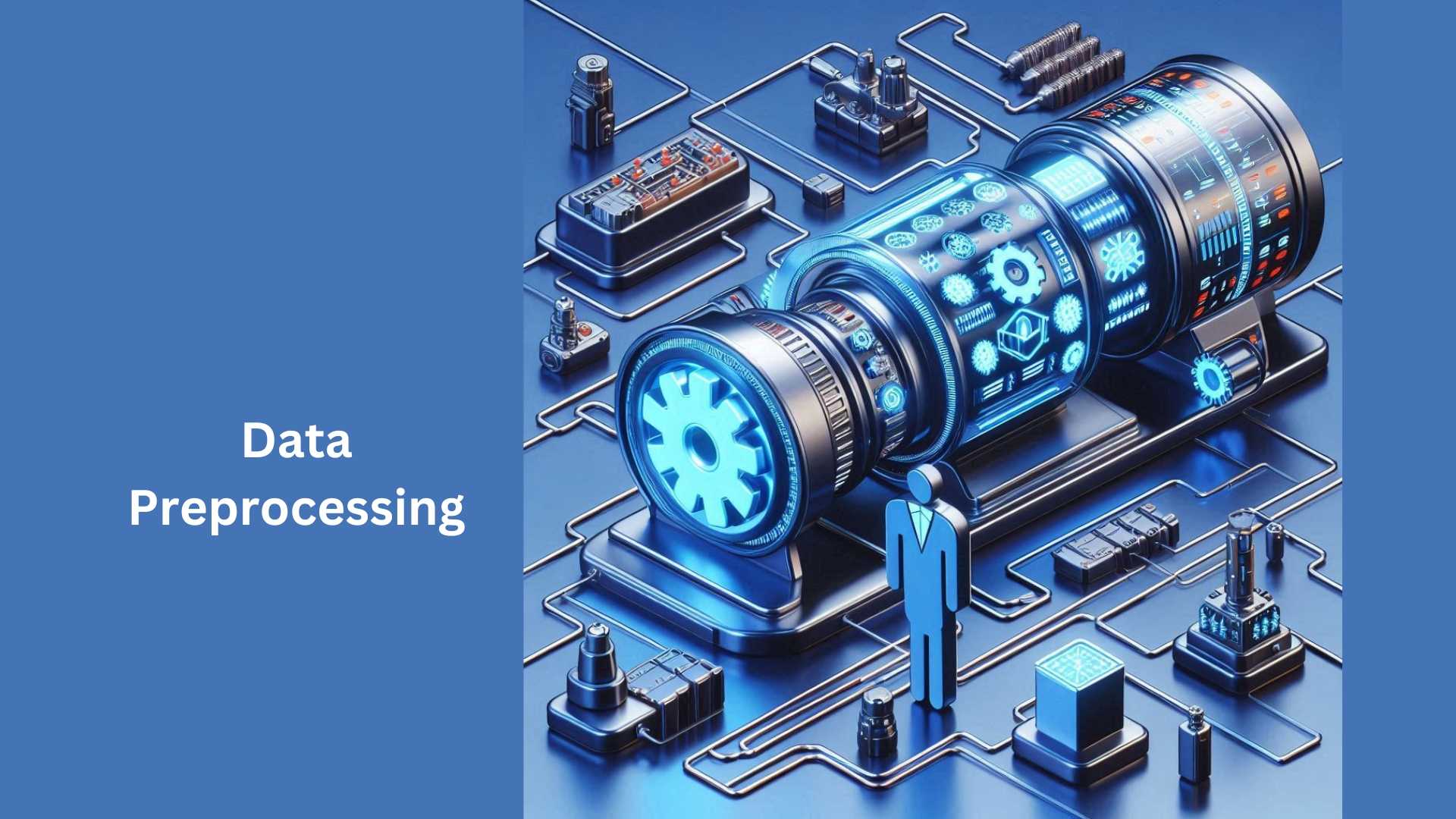Machine Learning (ML) models are shaping our world, influencing decisions across various industries. However, this power comes with a significant responsibility to ensure the accountable and ethical use of data throughout the ML lifecycle. This is where data governance plays a crucial role in the context of MLOps.This chapter explores the intersection of data governance and MLOps, guiding readers in establishing ML frameworks for accountable ML, where transparency and traceability are central tenets.
ML Frameworks need accountability for reliability:
Accountability is fundamental for building trust in AI and ensuring its responsible development and deployment. This entails:
- Understanding model behavior: Knowing how models make decisions and ensuring they are aligned with intended outcomes.
- Identifying and mitigating biases: Identifying and addressing potential biases in the data and models to ensure fair and unbiased outcomes.
- Ensuring data privacy: Safeguarding individual privacy rights by adhering to relevant data privacy regulations and minimizing data collection and usage to what is necessary.
- Transparency in decision-making: Providing transparency around how models are developed, trained, and deployed, fostering trust with users and stakeholders.
ML Frameworks empower Data Governance’s accountability.
Data governance establishes frameworks for data quality, security, and compliance throughout its lifecycle. This foundation is crucial for building accountable AI within MLOps, as it enables:
- Traceability and lineage tracking: Tracking the origin, usage, and transformation of data throughout the ML pipeline, facilitating understanding of model behavior and identifying potential issues.
- Data quality assurance: Implementing data quality checks to ensure data accuracy, completeness, and consistency, leading to reliable and unbiased ML models.
- Clear ownership and responsibility: Defining clear ownership and accountability for data quality, security, and compliance across the ML lifecycle.
- Adherence to regulations: Ensuring adherence to relevant data privacy regulations like GDPR and CCPA, promoting responsible data management, and mitigating legal risks.
Utilizing ML Frameworks for Data Governance Accountability
Here are key steps to establish a robust data governance framework for accountable ML within the MLOps context:
1. Define Accountability Principles:
- Establish clear principles around data ownership, access control, responsibility for decision-making, and record-keeping within the ML lifecycle.
- Define metrics for measuring and monitoring adherence to these principles, ensuring continuous improvement and accountability throughout the process.
2. Establish Roles and Responsibilities:
- Clearly define roles and responsibilities for accountable data management within MLOps. This includes data ownership, data quality checks, managing access control, and ensuring regulatory compliance.
- Appoint a dedicated data governance officer or team to oversee the implementation and enforcement of data governance policies and principles.
3. Implement Data Quality and Security Measures:
- Implement data quality checks to ensure data accuracy, completeness, and consistency across the ML pipeline. This includes data validation routines, anomaly detection, and data cleansing techniques.
- Enforce data security measures like access control, encryption, and data anonymization to protect sensitive information and prevent unauthorized access.
- Implement logging and auditing mechanisms to track data usage, model training events, and user activity within the ML pipeline, facilitating traceability and accountability.
4. Foster Transparency and Explainability:
- Document data sources, model training processes, and decision-making logic to promote transparency and understanding of how models work.
- Utilize explainability techniques like LIME (Local Interpretable Model-agnostic Explanations) or SHAP (SHapley Additive exPlanations) to understand the factors influencing model decisions for individual data points.
- Develop clear communication strategies to communicate how ML models are used and how decisions are made, addressing potential concerns and fostering trust with stakeholders.
5. Enable Continuous Improvement and Monitoring:
- Regularly review and audit data governance practices to identify and address potential issues proactively.
- Stay updated on evolving data privacy regulations and adapt data governance practices accordingly.
- Foster a culture of continuous learning and improvement within the MLOps team, encouraging individuals to actively identify and address potential accountability risks.

Enhancing Accountability in AI with ML Frameworks:
While a robust data governance framework provides the foundation, MLOps professionals can utilize specific techniques to further enhance accountability in their daily practices. Here’s a deeper exploration of three key techniques mentioned earlier:
1. Version Control for Data and Models with Git:
Integrating version control systems like Git into MLOps workflows offers several benefits for enhancing accountability:
- Tracing and reproducibility: Git precisely tracks changes made to data and models, including timestamps and usernames. This allows you to trace the evolution of the data and models, understand who made specific changes, and reproduce the exact data and model versions used for a specific outcome. This is crucial if issues arise or audits are required, enabling you to revert to previous versions or identify the source of potential problems.
- Collaboration and transparency: Git facilitates collaboration by allowing multiple individuals to work on different parts of the data pipeline or model development process without interfering with each other’s work. Merging and branching functionalities enable seamless collaboration while maintaining a transparent history of changes. This promotes understanding of the entire ML lifecycle and fosters accountability among different contributors.
- Rollback capability: If unintended changes or errors are introduced during data preparation or model training, Git empowers you to easily roll back to a previous, known-good version of the data or model. This minimizes the impact of mistakes and ensures data and model integrity throughout the MLOps pipeline.
Implementation Considerations:
- Establish clear versioning policies: Define clear guidelines for naming conventions, versioning logic, and branch management practices within the MLOps team. This ensures consistency and facilitates navigation within the version control system.
- Integrate with MLOps tools: Integrate Git with your existing MLOps tools and pipelines for seamless version control of data, models, and code. This streamlines workflow and minimizes manual intervention.
- Educate and train the team: Ensure MLOps team members are trained on using Git effectively within the context of data governance and accountable ML. This includes understanding basic version control concepts, branching strategies, and collaboration practices.
2. Explainable AI (XAI) Techniques for Understanding Model Behavior:
Integrating XAI techniques into the MLOps process plays a crucial role in achieving accountability:
- Understanding model decision-making: XAI tools like LIME (Local Interpretable Model-agnostic Explanations) or SHAP (SHapley Additive exPlanations) shed light on the factors influencing model decisions for individual data points. This enables MLOps professionals to understand the rationale behind model predictions and identify potential biases or unintended consequences of model behavior.
- Identifying and mitigating bias: By analyzing model explanations, you can identify features or patterns within the data that may be unfairly influencing model predictions. This allows for mitigating potential biases through techniques like data debiasing, feature engineering, or adjusting model training algorithms.
- Improving model fairness and transparency: By understanding how models make decisions and addressing potential biases, you can work towards building fairer and more transparent AI solutions. This enhances trust and accountability, allowing stakeholders to understand the reasoning behind model outputs and feel confident in their reliability and fairness.
Implementation Considerations:
- Select appropriate XAI techniques: Choose XAI techniques that are well-suited for the type of ML model you are using and the desired level of explainability. Different techniques offer varying levels of transparency and interpretability.
- Integrate XAI tools into the MLOps pipeline: Consider integrating XAI tools into your existing MLOps pipeline to enable continuous monitoring and explanation of model behavior throughout the ML lifecycle.
- Communicate explanations effectively: Develop strategies for effectively communicating model explanations to stakeholders and users. This may involve simplifying technical explanations, utilizing visualizations, and tailoring communication to the audience’s level of understanding.
3. Automated Data Quality Checks for Early Detection of Issues:
Automating data quality checks is an essential step towards proactive risk management and building accountable AI:
- Early detection and prevention: Automating data quality checks allows you to identify potential issues with data accuracy, completeness, or consistency early in the ML pipeline before they can negatively impact model performance or lead to biased outcomes. This proactive approach prevents downstream issues and ensures data quality throughout the MLOps lifecycle.
- Improved efficiency and scalability: Automating data quality checks reduces the need for manual intervention, freeing up valuable resources and improving the efficiency of the MLOps process. Additionally, automation scales well with increasing data volumes, ensuring consistent data quality even as the data landscape grows.
- Standardization and consistency: Automating data quality checks enforces standardized rules and thresholds across the ML pipeline, ensuring consistency in data quality assessment and minimizing the risk of human error.
It’s important to remember that building accountable AI is an ongoing journey, not a one-time effort. MLOps professionals play a critical role in this journey by:
- Staying updated on advancements: Continuously learning about emerging data governance best practices, XAI techniques, and other advancements relevant to building accountable AI.
- Promoting a culture of responsibility: Fostering a culture within the MLOps team that prioritizes ethical considerations, transparency, and accountability throughout the ML lifecycle.
- Collaborating with stakeholders: Engaging in open communication and collaboration with data governance specialists, data scientists, and other stakeholders to ensure that data governance practices are effectively integrated into the MLOps workflow.
Challenges and Considerations of data governance:
While data governance frameworks offer a powerful foundation for accountable ML, implementing them within MLOps environments presents several challenges:
- Balancing accountability with efficiency: Striking a balance between enforcing accountability mechanisms and maintaining efficient MLOps processes can be challenging. Overly stringent measures can hinder development and deployment, while insufficient accountability can lead to potential ethical and legal issues.
- Managing complexity: As ML pipelines and data volumes become increasingly complex, maintaining robust data governance practices can be difficult. Efficiently applying controls and tracking data lineage across intricate pipelines requires effective communication, collaboration, and potentially, automated tools.
- Evolving regulations: The landscape of data privacy regulations is constantly evolving, requiring MLOps teams to stay updated and adapt their data governance practices accordingly. This can be resource-intensive and requires ongoing efforts to ensure compliance with changing regulations across different regions.
Strategies for Mitigating Challenges in Building Accountable AI
While the advantages of data governance for accountable AI are undeniable, translating them into practice within MLOps environments presents several challenges. Here’s a deeper exploration of the suggested approaches to mitigate these challenges effectively:
1. Prioritization and Risk Assessment:
- Identifying high-risk scenarios: Analyze potential risks associated with specific data and applications, considering factors like sensitivity of data, potential for bias, and impact on individuals or society.
- Balancing accountability and efficiency: Implement stricter data governance measures for high-risk scenarios, such as enhanced access control, rigorous data quality checks, and comprehensive audit trails. For low-risk scenarios, streamline processes while maintaining essential controls.
- Dynamic prioritization: Continuously evaluate risks as data landscapes and regulations evolve. Adapting data governance practices to address emerging risks ensures consistent accountability across the ML lifecycle.
2. Collaboration and Communication:
- Cross-functional teams: Establish communication channels and collaborative processes between MLOps teams, data governance specialists, data scientists, and other stakeholders.
- A shared understanding of accountability: Facilitate workshops and discussions to foster a shared understanding of accountability principles, data governance practices, and their application within the MLOps context.
- Clear responsibilities: Define clear roles and responsibilities for data governance within the MLOps workflow, ensuring ownership and accountability for data quality, security, and compliance.
3. Leveraging Technology:
- Automation: Utilize automated tools for data quality checks, data lineage tracking, access control management, and logging activities. This improves efficiency, reduces manual errors, and streamlines data governance processes.
- Cloud-based solutions: Explore cloud-based data governance platforms that offer built-in features and functionalities for automated checks, compliance management, and user access control.
- Integration with MLOps tools: Integrate data governance tools seamlessly with existing MLOps tools and pipelines for a unified and efficient workflow.
4. Investing in Continuous Learning:
- Upskilling MLOps teams: Equip MLOps professionals with the knowledge and skills required to understand and implement data governance practices effectively. This could involve training programs, workshops, and certifications in data governance and responsible AI principles.
- Knowledge sharing: Encourage knowledge sharing within the MLOps team through internal talks, discussions, and collaborative documentation to foster a culture of continuous learning and improvement.
- Staying updated: Monitor advancements in data governance best practices, regulations, and emerging technologies to ensure the MLOps team remains equipped to address evolving challenges in building accountable AI.
By embracing these multi-pronged approaches, MLOps teams can navigate the challenges associated with implementing data governance for accountable AI effectively. Prioritizing and tailoring measures based on risk, fostering collaboration and communication, leveraging technology for efficiency, and investing in continuous learning empower MLOps teams to build and deploy AI solutions responsibly and ethically.
Key Takeaways:
- Data governance plays a pivotal role in ensuring accountability and transparency throughout the ML lifecycle within MLOps.
- Implementing data governance frameworks requires prioritizing: tailoring measures based on risk assessment, ensuring clear roles and responsibilities, and investing in continuous learning.
- Collaboration and communication are crucial, fostering shared understanding between stakeholders and enabling efficient integration of data governance practices within the MLOps workflow.
- Technological advancements offer valuable tools for automation, streamlining data governance processes, and reducing manual workloads while maintaining accountability.
- Building accountable AI necessitates a continuous learning approach, keeping MLOps teams equipped with the necessary knowledge and skills to navigate evolving challenges in responsible AI development.
Building accountable AI within MLOps requires a deliberate and collaborative approach. Implementing robust data governance frameworks that prioritize transparency, traceability, and compliance is crucial. By effectively addressing the specific challenges and continuously improving data governance practices, MLOps teams can ensure the responsible development and deployment of trustworthy AI solutions that benefit individuals, organizations, and society at large.
This journey towards responsible and accountable AI requires ongoing efforts. MLOps professionals play a vital role in driving this progress by:
- Advocating for responsible AI: Actively participate in discussions and contribute to building awareness about responsible AI principles within their organizations.
- Staying informed about emerging technologies: Stay updated on advancements in data governance tools, explainability techniques, and responsible AI best practices.
- Promoting a culture of continuous learning: Encourage ongoing learning and development within MLOps teams to ensure they are equipped with the necessary knowledge and skills to navigate the evolving landscape of data governance and responsible AI.
FAQ’s:
1. What is the relationship between data governance and MLOps?
Data governance and MLOps work together to ensure ethical, unbiased, and secure use of data throughout the machine learning lifecycle. While MLOps focuses on operationalizing ML models, data governance ensures data quality, security, and compliance.
2. How does data governance contribute to building trustworthy AI?
Data governance enhances trustworthy AI by improving data quality, enhancing security measures, increasing transparency in decision-making processes, and ensuring compliance with relevant regulations.
3. What are some key benefits of aligning data governance with MLOps?
Benefits include improved data quality leading to more accurate models, enhanced security measures, increased transparency in data usage, and compliance with regulations, mitigating legal and reputational risks.
4. What are some techniques MLOps practitioners can use to integrate data governance principles into their workflows?
MLOps practitioners can leverage techniques such as version control for data pipelines and training data, containerization with technologies like Docker, and bias detection and mitigation techniques.
5. What are the main challenges in implementing data governance for MLOps?
Challenges include balancing security with accessibility, managing complexity in evolving pipelines, and staying updated on evolving regulations across different regions.
6. How can MLOps professionals contribute to building responsible AI through data governance?
MLOps professionals can contribute by advocating for responsible AI, staying informed about emerging technologies, promoting a culture of continuous learning, and investing in responsible AI education within their organizations.









